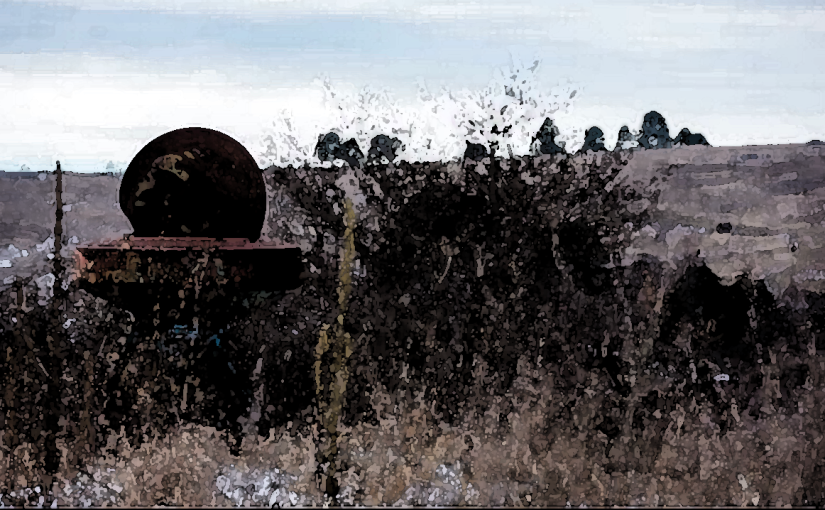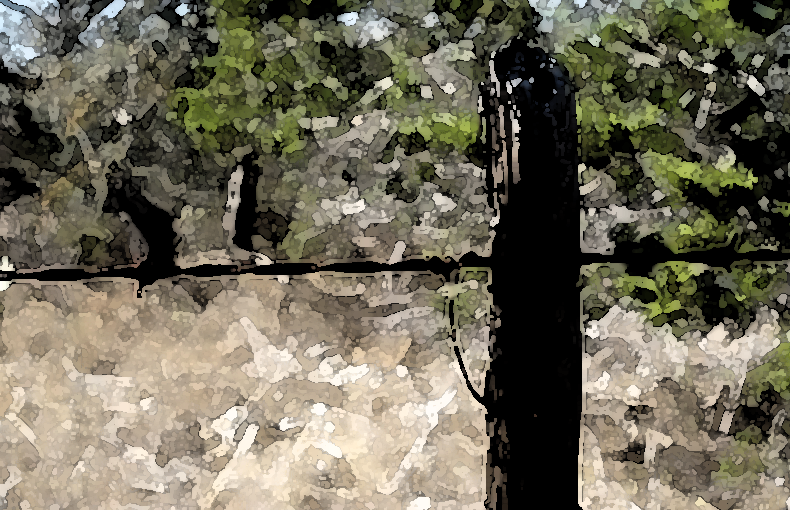Clyde Barrow and Bonnie Parker captured the imagination of Depression era America. Although their actual success at crime was a far cry from the myth, people were starving to be distracted from the dire reality of the dust bowl and economic devastation.
For about three years, 1931-1934, the “Barrow Gang” traveled Texas, Oklahoma and Missouri attempting to rob banks but more often small grocery stores or filling stations. Clyde was blamed for murders he didn’t commit. Criminal masterminds they were not, but the newspapers built them up into larger-than-life characters; publishing photographs of the couple that had been found at an abandoned hideout.
The portrayal in the press of Bonnie and Clyde was sometimes at odds with the reality of their life on the road, especially for Bonnie Parker. She was present at 100 or more felonies during the two years that she was Barrow’s companion, although she was not the cigar-smoking, machine gun-wielding killer depicted in the newspapers, newsreels, and pulp detective magazines of the day.
In May 1934 Frank Hamer, a legendary Texas Ranger, assembled a well-armed posse around Gibsland, Louisiana on Louisiana SR 154, not far from US 80, and they put over a hundred slugs into their bodies, bringing an end to their short but exciting run.
BARROW (F.D. Leone, Jr.) He grew up a poor boy in Texas A little smarter than the rest, and restless He looked around and didn’t see no justice The cards were stacked against a poor man Told himself he’d not be poor again She had honey golden hair and was so cute Got away with anything she’d do Loved the movies and said she’d be in one too The dreams of a poor girl ain’t free But nothin’ could dent her belief He stole cars and robbed grocery stores Then bigger crimes that could not be ignored Killed a lawman, when they sent him down he swore They’d never take him alive again He’d die before he went back to the pen When she met him she sure liked his flash For a time they ran wild and fast But even they knew it couldn’t last A Texas Ranger was on their trail Said he’d chase ‘em all the way to hell Blamed for crimes they didn’t even commit Magazines and newsreels reported it Didn’t matter if the facts didn’t fit That Ranger was closin’ in There was just one way it could end 1934 saw widespread trouble Folks started rooting for the fugitive couple The Law staked ’em out with a lot of muscle They never really had a chance Those bullets sure made ’em dance © 2019 Frank David Leone, Jr./Highway 80 Music (ASCAP). The songs and stories on the Highway 80 Stories website are works of fiction. Names, characters, businesses, places, events, locales, and incidents are either the products of the author’s imagination or used in a fictitious manner. Any resemblance to actual persons, living or dead, or actual events is purely coincidental.



